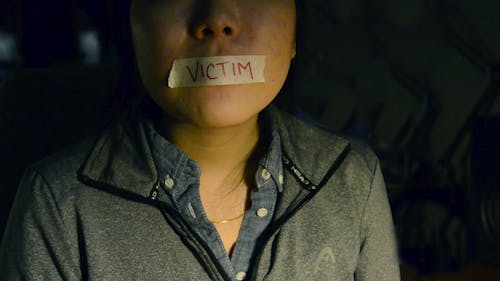Rutgers' annual Safety Matters Report shows increase in sex offenses

Last month, a year-long Rutgers survey called #iSpeak found that 1 in 5 undergraduate women at the University experienced unwanted sexual contact at least one point during their time on campus.
Flash forward one month to a more recent statistic found in Rutgers’ Annual Security & Fire Safety Report. The report, Safety Matters, cited 50 sex offenses at Rutgers in 2014 — almost double the 26 sex offenses in 2013.
The comprehensive report provides an overview of the University’s Public Safety services and includes statistical crime and fire-related information as required under the Clery Act. Each October, the Department of Education mandates that every university in the country release an Annual Security Report.
Rutgers' Safety Matters Report also reported one "unfounded" sex offense. An unfounded offense is one which is reported to law enforcement authorities and subsequently, through investigation by a sworn officer, found to be false or baseless.
"The one reported sexual assault which was investigated by the University Police Department and found to be unfounded was deemed false and therefore categorized accordingly," said Michael Rein, Deputy Chief of University Police Professional Standards Division, in an email.
Members of the Rutgers University Police Department (RUPD) and faculty at the University say the increase in reported sex offenses is not all bad news.
The sharp increase in sex offenses at Rutgers in 2014 may indicate the school is complying to a recent update to the Clery Act — the CampusSaVE Act.
The CampusSaVE Act expanded the definition of sex offenses when reporting annual statistics to include rape, acquaintance rape, domestic violence, dating violence, sexual assault and stalking. It began being enforced in March of 2014. With a broader definition of sex offenses came an increase in the number of sex offenses totaled in Rutgers’ Safety Matters report, Rein said.
“There has been a demonstrable increase in awareness of sexual offenses as a result of CampusSaVE Act (VAWA) including training on bystander responsibilities,” Rein said. “This has resulted in an increased degree of reporting.”
The increase in reported sex offenses at Rutgers could also be due to the University's work over the past few years in creating a safe environment for survivors to feel comfortable reporting.
"The University Victim Advocate services, particularly the University’s Office of Violence Prevention and Victim Assistance (VPVA), has done a tremendous job of educating the campus community and providing a safe avenue for reporting," Rein said.
The "1 in 5" statistic surrounding campus sexual assault is not fully reflected in reporting, but the increase in reported sex offenses at Rutgers can be linked to an increase in awareness, said Laura Luciano, assistant director of the Office of Violence Prevention and Victim Assistance.
Students and faculty at colleges across the country have increasingly been working to draw attention to the issue of campus sexual assault, which Luciano said may have led to a rise in reported offenses.
Last September, Columbia student Emma Sulkowicz sparked a nationwide campaign called "Carry That Weight." From East Coast to West Coast, college students joined her movement, which involved carrying mattresses around campus to raise awareness of sexual assault.
"What we see is an increase in awareness, and that has certainly been changing over the last few years," Luciano said.
Movements and campaigns surrounding sexual assault are happening at Rutgers as well. In September, Student Affairs launched a year-long campaign called "The Revolution Starts Here. End Sexual Violences Now," which includes outreach and educational programs to educate the student body on how to help friends in crisis.
This campaign was an attempt to combat another #iSpeak finding — less than 8 percent of female students who experience sexual violence disclosed it to the University.
"We will continue to see an increase because of the initiatives that are happening this year," Luciano said. "Not only (will there be) an increase in the awareness of sexual assault on our campus, but also students knowing what their options are and knowing where they can seek services."
Despite progress on the behalf of Rutgers administration, students may not be joining in, Luciano said.
Just last week, the Rutgers University Student Assembly (RUSA) shot down a bill to create a sexual assault prevention committee. Luciano said this sends the message that combatting campus sexual assault is not important.
"There is still an overwhelming belief that not everyone needs to be involved," Luciano said. "The representatives in RUSA that voted 'no' are sending a clear message to the rest of the student body that this is not that important. If there are survivors out there seeing this push from administration ... and then they see their peers saying 'this isn't a priority,' it could have a negative impact on survivors feeling they can come forward."



